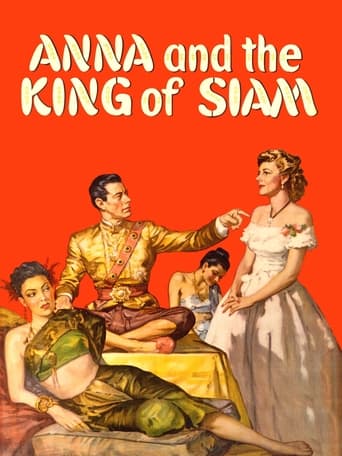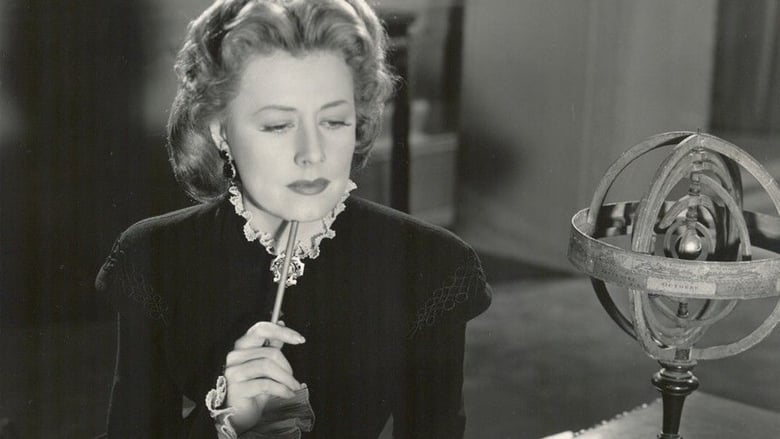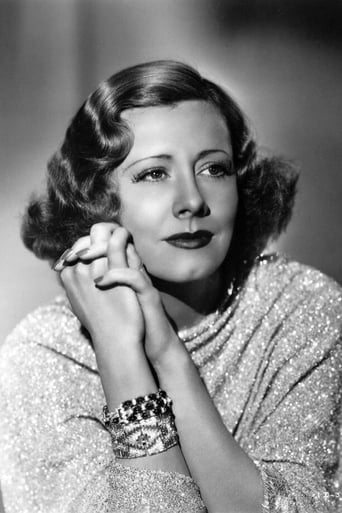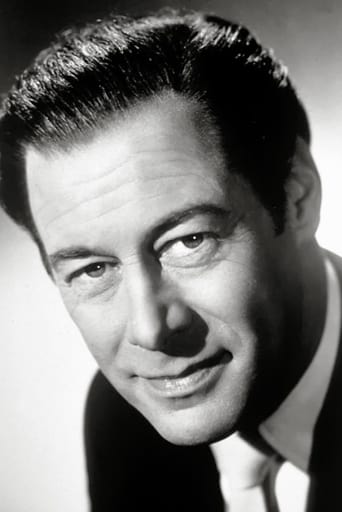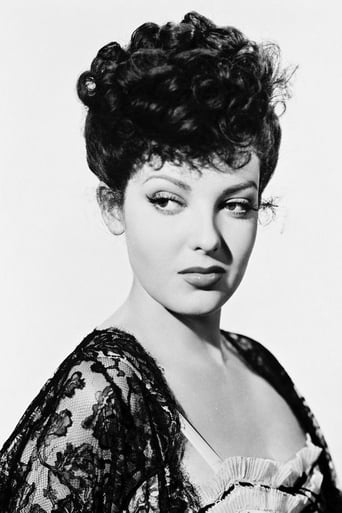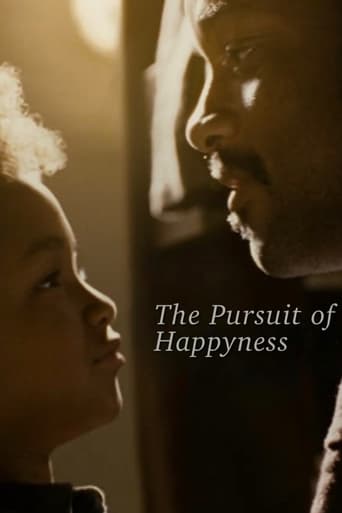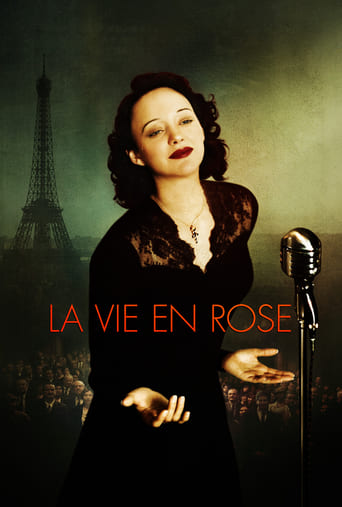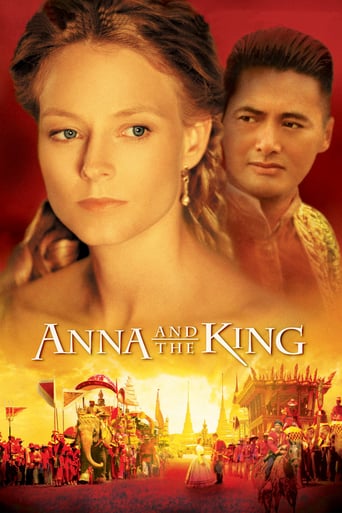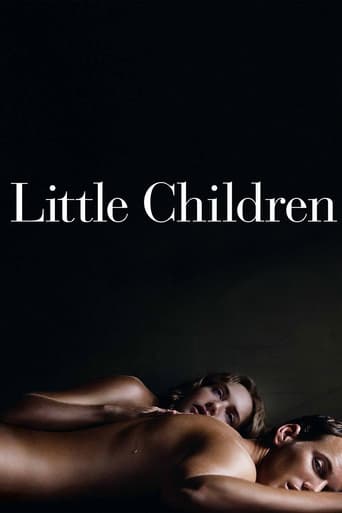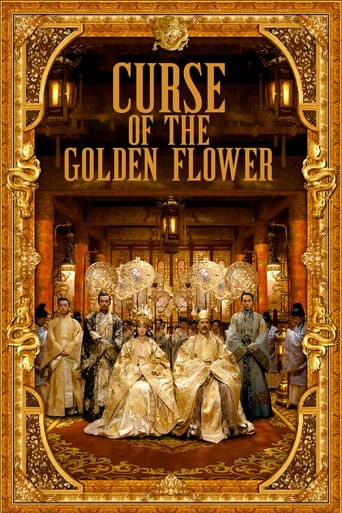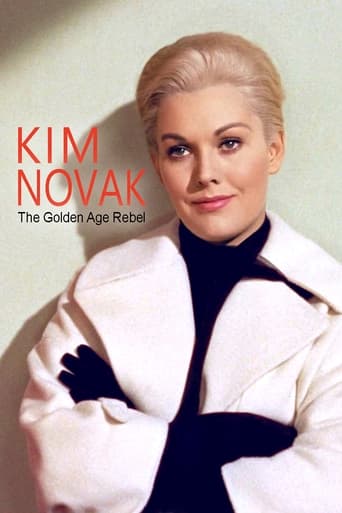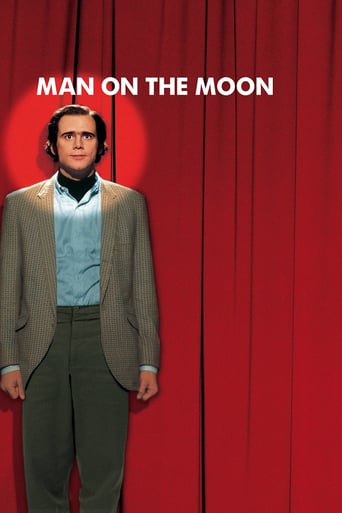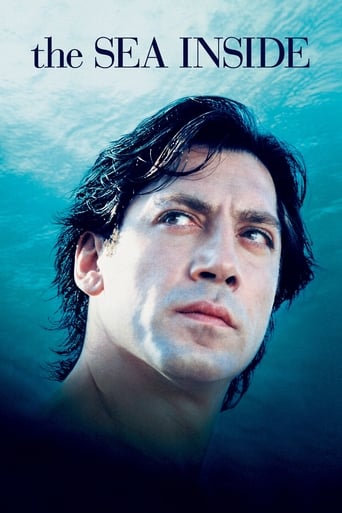Anna and the King of Siam (1946)
In 1862, a young Englishwoman becomes royal tutor in Siam and befriends the King.
Watch Trailer
Cast


Similar titles
Reviews
Entertaining from beginning to end, it maintains the spirit of the franchise while establishing it's own seal with a fun cast
The thing I enjoyed most about the film is the fact that it doesn't shy away from being a super-sized-cliche;
The movie's not perfect, but it sticks the landing of its message. It was engaging - thrilling at times - and I personally thought it was a great time.
It’s sentimental, ridiculously long and only occasionally funny
This movie is based on a book by Margaret Landon in 1944. "Anna and the King of Siam" was a best-selling novel based on a true story. The story is much more interesting and intriguing than the movie can portray. And the true story within the story is more fascinating yet. So, how much of the movie is fact, and how much fiction? First, the film and then the background. The main characters are real, and played well. I don't hold with those who argue that a person of one race can't play a role of another race. That's part of what theater and acting are about. Sure, it's nice and best if one can find the talent and qualified actors to play various ethnic roles. But it's not necessary. And, I don't nitpick actors who don't look a part, or who's accents aren't perfect – unless they are quite terrible to the point of distraction.Rex Harrison does an excellent job as Mongkut, the king Siam. Lee J. Cobb is very good as Kralahome, his prime minister. He is probably the least believable as Siamese, and that's because his distinct voice, build and persona are so well known. But his acting, and broken English (as one might expect of a Siamese), are very good. Gale Sondergaard is so good in her role as Lady Thiang that she looks and sounds Siamese. Linda Darnell is almost as convincing as Tuptim.Now the background. Margaret Landon was an American missionary who served with her husband in Siam from 1927-1937. She taught here three children along with Siamese in a mission school in Trang. She studied and read all about the country. She learned about Anna Leonowens who had been a governess to the Siamese royal family in the 19th century. After Landon's family returned to the U.S. in 1937, she wrote the book about Anna. It was a best-seller in 1944, and 20th Century Fox made this movie in 1946. A decade later, her book also would become the source for the Fox musical, "The King and I." But how much of the book is true? And how much is the film true to the book, and the real life story? I didn't read the book so I can't comment on it. Another book about Anna came out in 2008 that gave a somewhat different background. "Bombay Anna" was written by Susan Morgan. It claims to tell "the real story and the remarkable adventures of the 'King and I' governess." A New York Times review of that book on Oct. 20, 2008, called Anna Leonowens a con woman. "On disembarking in Singapore as a young widow in 1859, this gifted con woman subtracted three years from her age, relocated her birthplace from Bombay to Wales, forgot her mother's Indian parentage, promoted her father from private to major and changed her husband from a clerk to an army officer." Leonowens was educated and knew languages – Hindi, Marathi, Persian and Sanskrit, and she could mimic a genteel English accent. She was Anglo-Indian and born Nov 6, 1831, in India. In 1849, she married an Irish clerk, Thomas Leon Owens. The two surnames later were merged. The couple spent several years in Australia where a daughter and son were born. First was Avis in 1854, and then Louis in 1856. In 1859, Thomas died of a stroke in Malaysia where he managed a hotel. Then Anna moved with here children to Singapore, where she revised her background to fit in among the expatriate British colony there.King Mongkut of Siam was born in 1804. He became a Buddhist monk and read and studied much. He helped establish a monastery that became the intellectual center of Siam. Mongkut became king in 1851 and reigned until his death in 1868. In 1861, he asked his agent in Singapore to find an English governess for his children. Leonowens got the job and arrived in Bangkok in 1862. She sent daughter Avis to England to school and taught Thomas along with the royal household. She later sent Thomas to England to finish his schooling, and after five years she left Siam for the United Sates. She later moved to Montreal, Canada, to be near her daughter, and she died there in 1915 at age 84.So, how much of the movie is true to history? Well, Anna didn't stay into old age when the king died. He was older than she and he died in 1868. In the U.S. she wrote her memoirs and was successful as a teacher and traveling on the lecture circuit. Her son, Louis, did not die from an accident in Siam. Mongkut did write to a U.S. president and offer elephants. But it wasn't Abraham Lincoln, it was James Buchanan (1857-1861), and it was before Anna arrived in Bangkok. Mongkut was a progressive leader who ensured liberal education for his sons. After his death, they began many of his reforms. There is much more about Siam, Mongkut, Anna and others that room doesn't allow to tell here.In one scene, Mongkut has summoned Anna in the middle of the night. He questions the Bible story of creation. Anna says "Your majesty, the Bible was not written by men of science. It was written by men of faith. It was their explanation of the miracle of creation, which is just as great a miracle whether it took six days or many centuries. I think science does not contradict the Bible. It has only made us more aware of how great the miracle was."
Like other reviewers on here, I knew the musical The King and I, which I have always enjoyed, before I finally saw this movie. And, as others have said, they are two different things, each with their own merits.What I enjoyed most about this very fine movie was the particularly fine performance of Irene Dunne. I've seen her in other movies where she delivers a nuanced and understated performance, which is true of this movie as well, and in spades. There are times when just watching how she plays various emotions across her face is fascinating by itself. Other times she lets us see hints of emotions that her character then suppresses. Harrison is good as the King, though he plays him with broader strokes, as the script calls him to do. Anna is a complex individual, however, and Dunne does full justice to all its complexity.------------------------------------I just watched this movie again tonight, and I was struck, again, by Dunne's fine, understated performance, but also by the intelligence of the script and the pacing. The main characters are all three-dimensional, in an era when it would have been easy to do caricatures of the Siamese characters. Things move along at an unhurried pace, but it is never too slow. It's really one very fine movie.--------------------------And now I've watched it yet again on TCM, and my admiration for this movie only grows. I still stick by everything I've written in the past. Another thing that struck me on this latest watching was the very intelligent discussion of the importance of the rule of law. I have no idea if that exists in the book on which this movie was based. But this movie makes repeated and intelligent argument emphasizing that arbitrary rule by personal whim is not acceptable in the modern world. It must have struck particular chords in the immediate post-World War II world into which it was released.
Other comments on this production are very interestingly expressed and I won't add any specific criticism, positive or negative, here. But one thing struck me when I saw this on a TV broadcast years ago, and that was the eerie presaging of the lovely Linda Darnell's death in 1965, as the result of an accidental house fire. In this film, playing the ill-fated Tuptim, she is burned at the stake (something that was not reenacted in "The King and I"...talk about putting a kibosh on any pleasure to be derived from Rodgers & Hammerstein's musical reimagining of this story!) Earlier in "Hangover Square"(1945) her dead body is disposed of by being carried to the top and dumped as a Guy Fawkes Day bonfire is being torched. And later in "Forever Amber"(1947) she narrowly escapes being burned to death in the London mansion of her despised husband, the Earl of Radcliffe, during the Great Fire that consumed huge portions of that city during the reign of Charles II. Talk about CREEPY! Linda's star had suffered a long decline nearly twenty years after this film premiered, but her tragic departure was something that shocked and saddened her many fans.
At times pleasant, but mostly so-so version of the true exploits of English governess Margaret Langdon. There are many positives; perfect costuming and art direction, which the latter was awarded an Oscar. Cinematography also won the top honor and is quite lavish and well timed. As for the performances; Harrison's king doesn't have the grace, timing and presence of Yul Brynner's later screen king. While Dunne is a fine actress, she seems too warped into the melodramatic, while missing the lightness of the character and of the relationship she shares with the king. She has moments where she is quite close to having her down, but she holds herself back. The problems with the film are not major and it is quite lovely to look at. Sumptuous sets and exceptional photography carry us through, though director Cromwell suffered from the same problems as Dunne; the film lacked a sense of fun and light heartedness. This is not a horrible film, but it's taken a bit too seriously.

